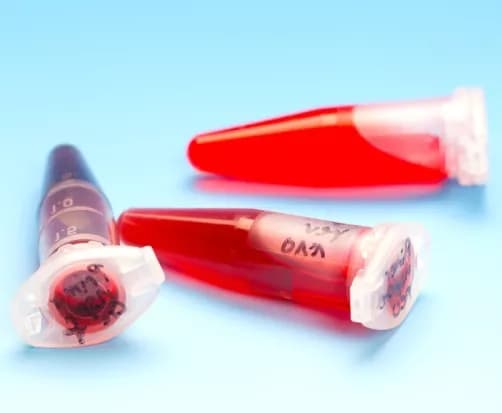
New Biomarker Is Higher In Suicide Attempters And Associated With Stress Response
Researchers at Lund and Malmö universities in Sweden have measured a biomarker in cell-free blood plasma which can be linked to an overactive stress system in suicidal individuals. This biomarker can hopefully be used in future psychiatric studies.
"We don't expect the marker to be able to predict who will try to commit suicide, but it may serve as a biological marker indicating greater stress exposure in vulnerable people suffering from various psychiatric conditions such as anxiety and depression. We would like to test the marker in future psychiatric studies and see how it is affected by, for example, lifestyle interventions, psychotherapy and pharmacological treatment," says Daniel Lindqvist, associate professor of experimental psychiatry at Lund University and psychiatry resident at Psykiatri Skåne.
The researchers compared 37 patients who had been hospitalized at a psychiatric clinic after attempting suicide with an equal number of healthy control subjects. About 70 per cent of both groups were female, and the average age of the patients was approximately 40.
Compared to the healthy control subjects, the suicidal patients had strikingly increased levels of mitochondrial DNA in their cell-free blood plasma.
The researchers also found that the large amount of mitochondrial DNA in the plasma was linked to higher levels of cortisol in the blood. Cortisol is an important hormone in the body's stress system and high levels of cortisol, which have been found in depressed and suicidal patients in previous studies, are a sign of an overactive stress system.
Previous studies have shown that depressed individuals have an increased level of mitochondrial DNA in their immune cells and that this is linked to stressful life events. Furthermore, studies on animals have shown that increased stress and cortisol levels are linked to higher mitochondrial DNA, but this is the first study to be tested on psychiatric patients.
"We believe the increased levels in suicidal patients are due to their exposure to severe stress for longer periods than the healthy subjects we compared them to. An increased level of cortisol can cause the body's cells to malfunction, which in turn contributes to increased levels of cell-free mitochondrial DNA in the blood," says Lars Ohlsson, senior lecturer at Malmö University.
"The amount of mitochondrial DNA in cell-free plasma is a new and interesting marker of stress that can be used in future psychiatric studies, but the results have to be replicated in other groups of patients as well. A key question will be how the biomarker changes over time in connection with the patient's symptoms improving or deteriorating," says Åsa Westrin, associate professor of clinical psychiatry at Lund University and senior physician at Psykiatri Skåne.
Materials provided by Lund University. Note: Content may be edited for style and length.
Disclaimer: DoveMed is not responsible for the accuracy of the adapted version of news releases posted to DoveMed by contributing universities and institutions.
Primary Resource:
Lindqvist, D., Fernström, J., Grudet, C., Ljunggren, L., Träskman-Bendz, L., Ohlsson, L., & Westrin, Å. (2016). Increased plasma levels of circulating cell-free mitochondrial DNA in suicide attempters: associations with HPA-axis hyperactivity. Translational Psychiatry, 6(12), e971. DOI: 10.1038/tp.2016.236
Related Articles
Test Your Knowledge
Asked by users
Related Centers
Related Specialties
Related Physicians
Related Procedures
Related Resources
Join DoveHubs
and connect with fellow professionals

0 Comments
Please log in to post a comment.